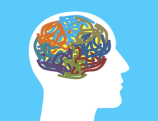Making Connections Between Buddhism & Neuroscience
Every Sunday I’d awaken by the bustling sound of my dad getting ready for our visit to the temple. I'd make an unpleasant groaning sound at a loud volume and crawl under my blanket. Today is, although there never has been, particularly not an appropriate Sunday to wake up at 6 am and go to temple.
As we are greeted by a group of temple members, my dad pinches my cheek as a sign to disguise annoyance on my face with an innocent smile. We then gather in the meditation hall for a period of seated meditation that typically lasts around 30 minutes to an hour, which is long enough for me to fall asleep. Though today is different; I am neither falling asleep nor spacing out to Mars. Being immersed in the relaxing environment of the meditation hall and the cold morning breeze swinging my hair, I contemplate. I think about the past. Or, more accurately, I blame myself for every mistake and misfortune. I have been desperately soulless and feeling completely unworthy of all I deserve. I feel defeated, and unanswerable questions beginning with "if" swirled in my mind.
Following the meditation session came the part I disliked the most: the teachings and philosophy of Buddhism. We would read sacred texts, listen to senior monastics impart their wisdom to deepen our understanding of Buddhist principles. Strangely, seemingly meaningless questions from these texts caught my attention, stirring a sense of familiarity within me. Why do we exist? What is the purpose of our birth? Must we achieve great things in order to find happiness? Why do we spend much of our lives feeling unhappy and unable to find contentment? It dawned on me that these were the same questions that had plagued my mind earlier, but now they seemed to have answers.
Buddhism teaches that our constant pursuit of pleasure is what leads to suffering. Pleasure is not synonymous with true happiness. From a neurobiological perspective, this rang true to me. Pleasure is associated with dopamine, the molecule of "more"—always seeking further gratification. Seeking pleasure becomes less about the pleasure itself and more about escaping the pain and suffering that accompany its absence.
As I made connections between Buddhism and neuroscience, I realized they both shared a common insight: the need to retrain our brains and ourselves to value inner peace over fleeting pleasure, to find joy amidst challenges, and to discover happiness in the very process of living.
I reached out to AADA because I wanted to share my experience as a student struggling to balance academic and personal life and to deliver to other students out there that they are not alone in this journey.
Share Your Story and Voice and Help #breakthestigma Around Mental Health
Support ADAA's Mission - Every Gift Makes an Impact



















